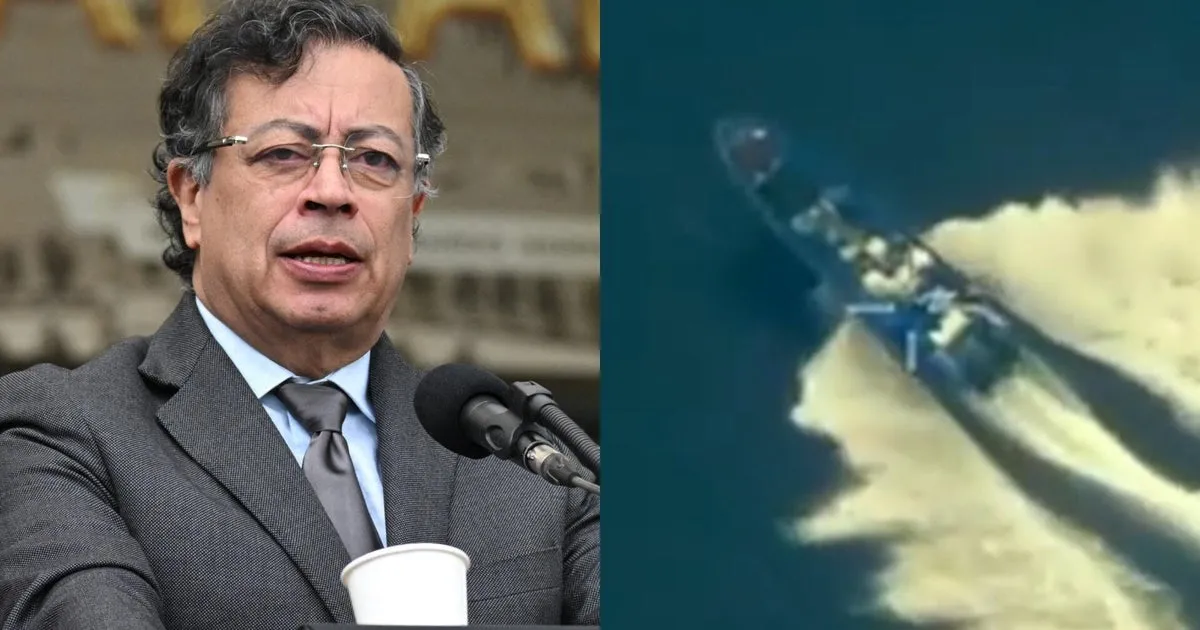
Colombia's left-wing President Gustavo Petro has voiced strong objections to recent U.S. military strikes targeting alleged drug smuggling boats in international waters. Petro argues that these strikes, endorsed by the Trump administration, are an easy but ineffective means of addressing the vast issue of drug smuggling. He also claims that these actions are illegal under international law.
Over the past two months, the Trump administration has reported at least 10 military strikes against boats suspected of trafficking narcotics, with two occurring off the coast of Colombia this week. The most recent strike, announced by Defense Secretary Pete Hegseth, targeted a vessel linked to the Tren de Aragua gang, which is known for its illicit activities in the Caribbean Sea. Hegseth stated that six male narco-terrorists were aboard the boat during the nighttime operation, marking the first such strike conducted under the cover of darkness. All six individuals were reportedly killed, and no U.S. forces were harmed during the operation.
In an exclusive interview with CBS News, President Petro expressed concern that some of the casualties from these U.S. strikes may have been innocent civilians. He reiterated his position that these attacks infringe upon international law. While the White House has denied these allegations, President Trump has defended the military actions as a necessary part of his administration's fight against drug trafficking organizations.
When asked whether he would consider softening his rhetoric in response to President Trump, Petro insisted that he was merely reciprocating the tone set by the American leader. The Drug Enforcement Administration has reported that approximately 90% of the cocaine entering the United States originates from Colombia. In light of this, Trump has criticized Petro for his perceived inability to control the drug cartels operating within Colombia, labeling the country as a "drug den" and describing Petro as a "lousy leader." While Trump is correct in noting the increase in cocaine production in Colombia, Petro argues that the situation requires a collaborative approach rather than unilateral military strikes.
President Petro has invited Trump to engage in dialogue at the presidential palace, emphasizing that Colombia received no prior warning about the U.S. military operations. “We don’t even know where they’re going to happen,” he stated. He highlighted the dangers of targeting small boats carrying a limited number of individuals, asserting that such actions are merely a superficial solution. Petro contends that if the U.S. truly wants to combat drug trafficking effectively, it should focus on capturing the leaders of these criminal enterprises rather than targeting their workers.
Recently, President Trump indicated that the U.S. military campaign against drugs might soon extend from maritime operations to land-based interventions. This escalated tension was exemplified when two long-range U.S. B-1 bombers were seen flying near Venezuela. In response, Petro expressed hope that U.S. military operations would not extend into Colombian territory, warning that such actions could incite further violence and drive more individuals towards insurgency. “When farmers are attacked, they hide in the mountains and take up arms,” he cautioned, stressing the importance of dialogue over military confrontation.
Amidst these tensions, Petro has also addressed the potential impact of Trump’s threats to cut U.S. aid to Colombia. He asserted that if such funding were to be withdrawn, his government would find alternative ways to fill financial gaps and is not overly concerned about threats of tariffs from the Trump administration.
In conclusion, the conflict between President Gustavo Petro and the Trump administration underscores the complex dynamics surrounding drug trafficking and international relations, highlighting the need for cooperative strategies over military intervention.